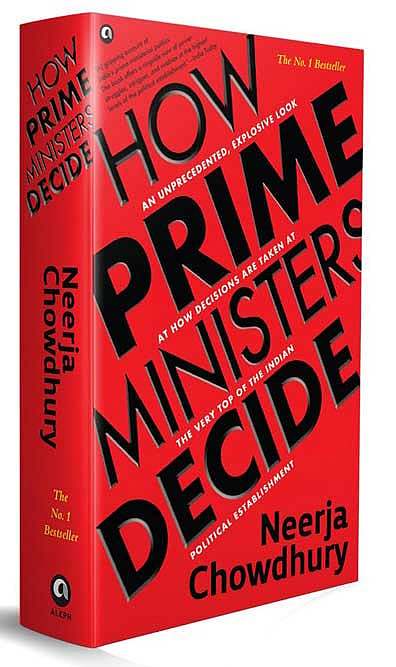Power Portraits

Even for a seasoned journalist who had routinely reported political events for all those long years from Indira Gandhi’s fall and return to the rise of Narendra Modi at the Centre, compiling the key decisions of six prime ministers in their most trying times cannot have been an easy exercise. How Prime Ministers Decide by columnist and political commentator Neerja Chowdhury is a vast reservoir of information about top-notch Indian politicians with their unique characteristics, political and ideological views, and personal attributes. For aspiring students and readers who are new to the subject and analysts who have a fair idea of the period, this book is a credible reference material, rich with anecdotes, first-person accounts and rare interviews. It offers a ringside view of the prime ministerial politics of the period under review.
For someone who had also met all prime ministers except Jawaharlal Nehru, Lal Bahadur Shastri and Gulzarilal Nanda and had interviewed some of them, Chawdhury says it was her notebooks that helped her the most in writing this huge volume about a period of Indian history that saw the country come of age through endless trials. She had saved the notes in anticipation that she would use them to write a book later. “Countless notebooks stacked away in forgotten almirahs; thousands of pages of documents, studies, news reports and books; free from the tyranny of the journalistic deadlines, I dived deep and resurfaced with treasures I was not aware I had. To these, I added more interviews, and further study, to write this book,” Chowdhury writes in the introduction.
Openomics 2026: Continuity and Conviction
06 Feb 2026 - Vol 04 | Issue 57
The performance state at its peak
Staying constantly in touch with political figures and their associates who defined and redefined Indian politics has its blessings, if that experience is put to good use. This book proves just that. Not all the information in this book is new, but thanks to how the author places many of them in context, the book makes for an engaging read. Starting with Indira Gandhi’s remarkable comeback in the 1980 elections after a humiliating defeat less than three years earlier, it takes us finally to the age of diarchy of 2004-2014. She argues in the final chapter, replete with blow-by-blow accounts of the goings-on in the top echelons of power in Delhi, that thanks to his success in clinching the India-US civilian nuclear deal Manmohan Singh became “his own man”. Singh is the only prime minister alive in the cast of characters in this book. Meanwhile, the author also writes about the apparent reasons why Sonia Gandhi decided not to be prime minister.
What makes reading this work a liberating experience are the behind-the-scenes insights, the largely underreported details that tell us more about people in politics, what they were, in contrast with what we know about them. She writes about how Indira Gandhi reached out to her most bitter critic Charan Singh during Emergency, besides Atal Bihari Vajpayee and Chandrasekhar. She concludes, “By the end of 1976, some of them were in a conciliatory mood.”
The author also dwells on Rajiv Gandhi, the hopes he had raised, his misadventures, and the inadvertent mixing of religion with politics. As with VP Singh’s brief rule and his Mandal gambit, her pronouncements seem apt: “VP’s emergence as Rajiv Gandhi’s successor marked the end of the rule of the Nehru-Gandhi dynasty.” She also quotes him, “Some run governments. I ran history. It will define governments and coalitions in the time to come.” It isn’t easy to disprove him since the OBCs, who formed the core of his political interest, continue to play a more critical role in politics than ever before.
The other prime ministers Chowdhury puts the spotlight on are PV Narasimha Rao and Vajpayee. Although several new books have been written about them, her accounts are rich with a reporter’s flavour and eye for detail. It is not unusual these days that we raise eyebrows of disapproval while reading books on politics, but this book rarely gives us such an opportunity.

